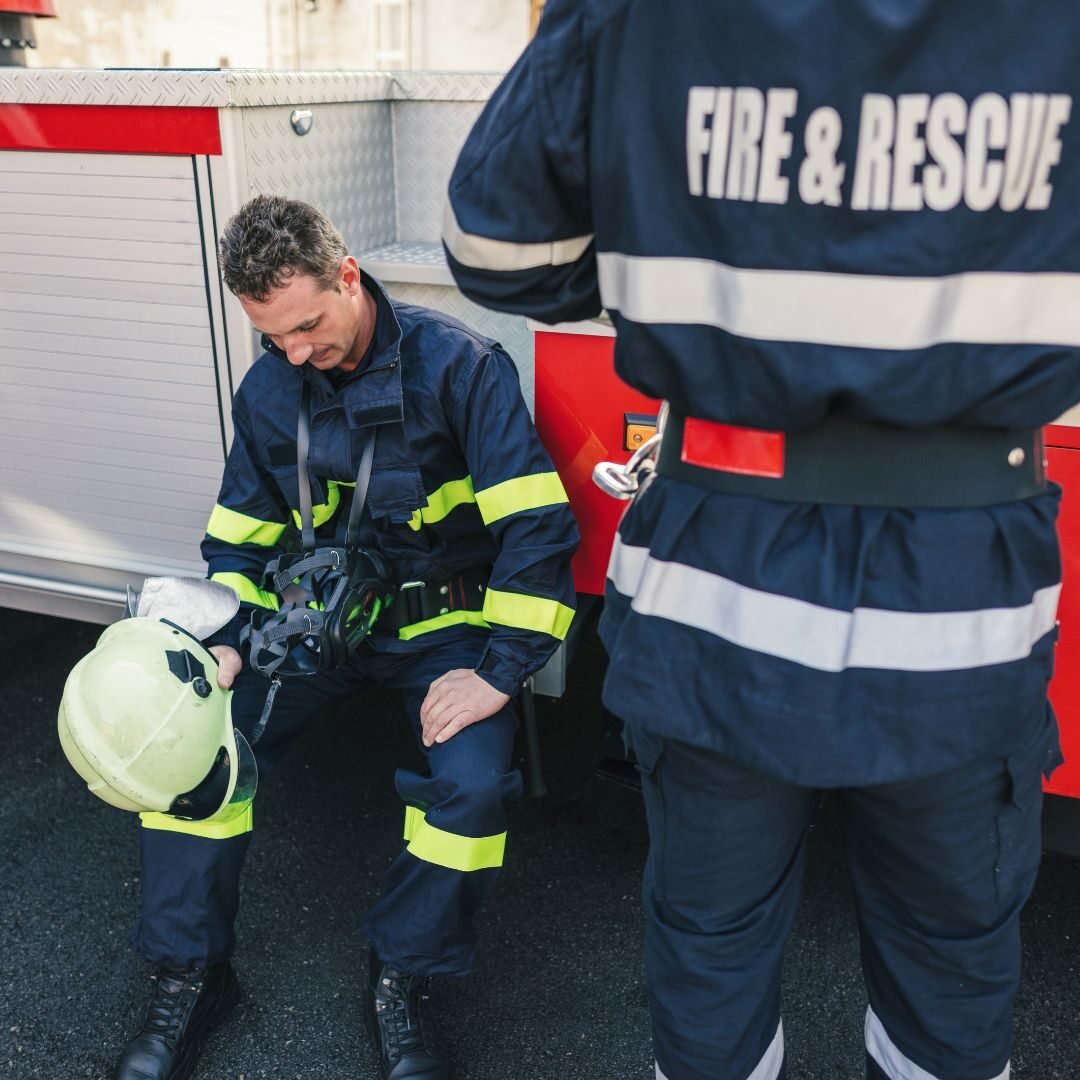Stress is no longer the exception—it’s becoming the norm. Across professions, people are burning out, feeling overwhelmed, and struggling to keep up. A recent study shows that 41% of healthcare professionals experience burnout every month, with nearly a quarter considering leaving their role weekly. It’s not just a personal problem—it’s a public health issue: link here
Mental health challenges are also increasing among the working population outside the health workforce. According to a new report, a growing number of the workforce is experiencing high levels of stress, taking more sick leave, and seeking greater support from their employers: link here
But what happens when your role isn’t just stressful—it’s life-or-death? Volunteer first responders are the heroes who rush toward emergencies—fires, floods, accidents—putting themselves on the front line to protect others. We often think about the mental and emotional challenges they face, but there is another side that is just as important: how stress affects their bodies.
Stress and psychosomatic symptoms
Psychosomatic symptoms are physical problems that arise because of psychological stress. This can include headaches, muscle tension, fatigue, trouble sleeping, irritability, and digestive issues. These symptoms aren’t imagined — they are very real signs that the body is reacting to overwhelming stress.
To better understand how psychosomatic symptoms affect volunteer first responders, the MentaStress project surveyed 178 volunteers across five European countries: Greece, Spain, Hungary, France, and Italy. They shared their experiences working in disaster and emergency situations, the physical symptoms they faced afterward, and how they coped.
Our survey approach draws on principles from Emotion-Focused Therapy (EFT), which highlights the vital connection between emotions and their physical expressions. EFT teaches us that emotions are not only felt mentally but are experienced in the body as well — for example, stress can manifest as tight muscles, headaches, or stomach discomfort. Understanding these mind-body interactions helps us identify how volunteers’ emotional experiences during crises translate into physical symptoms.
Key Findings: Stress leaves its mark on the body
- Physical symptoms after crisis are common: Nearly 40% of volunteers reported experiencing physical symptoms like headaches and stomach problems at least sometimes after crisis work.
- Sleep problems and fatigue are widespread: Over half struggled with sleep disturbances or felt fatigued regularly.
- Irritability and difficulty concentrating were frequently reported: These are signs of stress impacting both body and mind.
- Lack of mental health training makes it worse: Volunteers without mental health support or training experienced more frequent physical symptoms and sleep problems.
- Coping strategies matter: Exercise and talking with peers were linked to fewer physical complaints and better sleep quality, showing the power of social support and physical activity.
- Coping strategies matter: Exercise and talking with peers were linked to fewer physical complaints and better sleep quality, showing the power of social support and physical activity.
Why do these Symptoms occur?
Chronic stress can disrupt how the body’s stress-response systems work, especially the hypothalamic-pituitary-adrenal (HPA) axis and the autonomic nervous system. This disruption can cause the physical symptoms volunteers described. From an EFT lens, these psychosomatic symptoms reflect the body’s way of expressing unresolved emotional distress.

Breaking down barriers to support
Many volunteers face challenges when trying to get help: lack of time, not knowing where to turn, or feeling uncomfortable talking about their health. Recognizing and addressing these barriers is essential to providing effective support.
How MentaStress is helping
The MentaStress project is developing new training programs that blend emotional coping techniques inspired by EFT with somatic practices like guided breathing and muscle relaxation. These aim to help volunteers manage both the mental and physical effects of stress. Organizations are also encouraged to introduce routines such as brief debriefings and scheduled physical breaks during shifts to prevent stress from building up.
The Road ahead
Our volunteers deserve support that treats them as whole people—mind and body. By recognizing psychosomatic symptoms and creating targeted interventions based on the link between emotions and the body, MentaStress hopes to improve the health, resilience, and wellbeing of those who give so much in times of crisis.

